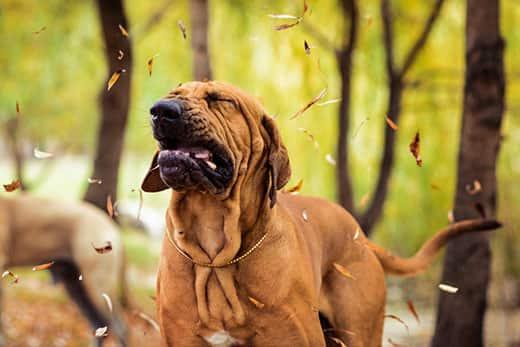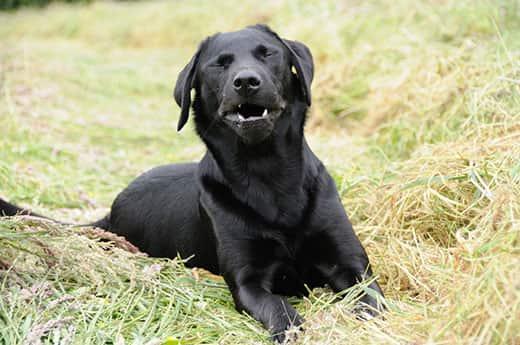
-
Find the right food for your petTake this quiz to see which food may be the best for your furry friend.Find the right food for your petTake this quiz to see which food may be the best for your furry friend.Featured products
 Small & Mini Mature Adult 7+ Dog Food
Small & Mini Mature Adult 7+ Dog FoodHill's Science Plan Small & Mini Breed Mature Adult Dog Food with Chicken is a complete pet food, specially formulated with ActivBiome+ Multi-Benefit Technology.
Tailored nutrition to support graceful ageing in small dogs. Specially made with a synergistic blend of nutrients for energy & vigor.Shop Now Perfect Digestion Large Breed Puppy Food
Perfect Digestion Large Breed Puppy FoodPrecisely balanced nutrition with Hill's ActivBiome+ prebiotic blend actively contributes to supporting digestive health and overall well-being to help your pet feel their best
Shop Now Perfect Digestion Small & Mini Adult Dog Food
Perfect Digestion Small & Mini Adult Dog FoodHill's Science Plan Perfect Digestion Small & Mini Breed Adult Dog Food with Chicken & Brown Rice supports ultimate digestive well-being & a healthy microbiome.
Shop NowFeatured products Hairball & Perfect Coat Adult Cat Food
Hairball & Perfect Coat Adult Cat FoodHill's Science Plan HAIRBALL & PERFECT COAT Adult cat food with Chicken is specially formulated to effectively help avoid hairball formation in adult cats while promoting a beautiful coat. Thanks to its mix of essential Omega-6 fatty acids, this food benefits the cat's skin and fur keeping them healthy and shiny. Our Advanced Fibre Technology helps reduce hairballs by naturally promoting their passage through the gut. This food is formulated with high-quality protein for a perfectly balanced, great-tasting recipe.
Shop Now Hypoallergenic Dry Cat Food
Hypoallergenic Dry Cat FoodHILL'S SCIENCE PLAN Hypoallergenic Adult cat food with egg & insect protein is a complete pet food for adult cat 1–6 years old. It's formulated for cats with delicate skin and stomach, with limited high quality novel protein sources & no grain.
Shop Now Kitten Food
Kitten FoodTender chicken chunks in gravy for kittens, with omega-3s for healthy eye & brain development and high-quality protein to support muscle growth. With balanced minerals to promote strong bones & teeth.
Shop Now -
Dog
- Dog Tips & Articles
-
Health Category
- Weight
- Food & Environmental Sensitivities
- Urinary
- Digestive
- Joint
- Kidney
-
Life Stage
- Puppy Nutrition
- Adult Nutrition
- Senior Nutrition
Cat- Cat Tips & Articles
-
Health Category
- Weight
- Skin & Food Sensitivities
- Urinary
- Digestive
- Kidney
-
Life Stage
- Kitten Nutrition
- Adult Nutrition
Featured articles Pet Food Storage Tips
Pet Food Storage TipsWhere you store your cat and dog food can make a big difference in the quality and freshness once it is opened. Here are some common questions and recommendations for optimal storage for all of Hill’s dry and canned cat and dog food.
Read More Understanding Your Pet's Microbiome
Understanding Your Pet's MicrobiomeLearn what a pet's microbiome is, how it contributes to your pet's gut & overall health, and why nutrition is important in maintaining healthy microbiomes.
Read More The Right Diet For Your Pet
The Right Diet For Your PetLearn what to look for in healthy pet food & nutrition, including ingredients, quality of the manufacturer, your pet's age, and any special needs they have
Read More -


If your dog sneezes a lot, you might find yourself asking yourself why. While it's normal for dogs to sneeze occasionally, excessive sneezing could be a symptom of a possible health condition. Keep reading to learn the answer to why dogs sneeze and discover when your pooch's sneezes could signal a deeper issue.
Anatomy of a Dog Sneeze
 While dog noses look very different from ours, the makeup of a dog nose is actually very similar to that of a human's.
While dog noses look very different from ours, the makeup of a dog nose is actually very similar to that of a human's.
The pharynx, located at the back of the throat, serves as the intersection between the nasal passages and digestive passages, says PetCoach. When an irritant enters the nose or pharynx, the body tries to get rid of it by expelling air through the nose and mouth. This is what's known as a sneeze.


Tasty Tips
My Dog Keeps Sneezing — Why?
Why do dogs sneeze? The cause of a dog sneeze can range from a piece of dust getting lodged in your pooch's nose to a viral infection. While dog sneezes are usually harmless, they can sometimes indicate deeper issues. Here are the most common reasons for your dog's sneeze attack:
Irritants and foreign objects: Dust, pollen and other small particles can become trapped in a dog's nose or pharynx and cause irritation. A dog's nose can also be irritated by perfumes, cigarette smoke and cleaning chemicals.
Allergies: Dogs can often suffer from seasonal allergies to various types of pollen. Dogs can suffer from seasonal allergies, which often is accompanied by itching, scratching, sometimes watery eyes or nasal discharge and occasionally intermittent sneezing.
Colds and viruses: Dogs, like people, are susceptible to the common cold and to viral infections that can cause sneezing. A dog suffering from a cold or virus will typically display other signs of illness such as nasal discharge, coughing, watery eyes, lethargy, fever or diminished appetite.
Infections: Bacterial and fungal infections in your dog's sinuses or nasal cavity could make them sneeze. Tooth infections can also work their way up into the nasal cavity. If your dog is sneezing due to an infection, you'll most likely see additional signs such as thick or bloody discharge, swelling around the nose and possibly appetite loss.
Tumors: In rare situations, dog sneezes can signal the presence of a nasal tumor. This is most common in senior dogs older than 8 years of age, says PetCoach. In the case of a tumor, sneezing may be sporadic at first, but grow more frequent as cancer progresses, and will eventually be accompanied by bloody discharge from one side of the nose.
Excitement: Some dogs sneeze because they're excited or happy to see you. One theory is that they wrinkle their noses when they're excited, which triggers a sneeze response. So, if your dog lets out a series of sneezes every time they greet you at the door, it likely just means they're happy you're home.

When to Take Your Sneezing Dog to the Vet
Generally, occasional sneezing that isn't accompanied by other signs of illness shouldn't cause concern. Frequent sneezing, on the other hand, especially without a clear cause, might require intervention.
While allergies aren't usually a serious threat to your dog's health, you should consult your veterinarian if, in addition to sneezing, they cause your pooch itching or skin irritation. If sneezing is accompanied by thick discharge or blood, or swelling, fever, appetite loss or lethargy, you should bring your dog to the vet right away.
If you notice your dog sneezing on a regular basis, be sure to watch closely for other signs. While your pup's sneezing could be no big deal, what's causing it may require some investigation.


Jean Marie Bauhaus is a pet parent, pet blogger, and novelist from Tulsa, Oklahoma, where she usually writes under the supervision of a lapful of fur babies.
Related products

Hill's Science Plan Small & Mini Breed Mature Adult Dog Food with Chicken is a complete pet food, specially formulated with ActivBiome+ Multi-Benefit Technology.
Tailored nutrition to support graceful ageing in small dogs. Specially made with a synergistic blend of nutrients for energy & vigor.

Precisely balanced nutrition with Hill's ActivBiome+ prebiotic blend actively contributes to supporting digestive health and overall well-being to help your pet feel their best

Hill's Science Plan Large Breed Adult Dog Food with Lamb & Rice is a complete pet food, specially formulated with ActivBiome+ Multi-Benefit Technology.
This food is specifically designed to fuel the energy needs of large breed dogs during the prime of their life.

Hill's Science Plan Perfect Digestion Small & Mini Breed Adult Dog Food with Chicken & Brown Rice supports ultimate digestive well-being & a healthy microbiome.
Related articles

Dog obesity is a significant problem - learn more about helping your dog become trimmer and healthier through improved nutrition.

Discover the causes, signs, and treatments of kidney disease in dogs and find methods of supporting your dog's kidney health. Learn more at Hill's Pet South Africa.

Discover how the field of dog science is giving us more and more insights into the inner workings of our furry best friends.

Learn about snake bites on dogs, including clinical symptoms to look for, what to do if you think your dog was bitten, and treatment & prevention options.

Put your dog on a diet without them knowing
Our low calorie formula helps you control your dog's weight. It's packed with high-quality protein for building lean muscles, and made with purposeful ingredients for a flavorful, nutritious meal. Clinically proven antioxidants, Vitamin C+E, help promote a healthy immune system.
Put your dog on a diet without them knowing
Our low calorie formula helps you control your dog's weight. It's packed with high-quality protein for building lean muscles, and made with purposeful ingredients for a flavorful, nutritious meal. Clinically proven antioxidants, Vitamin C+E, help promote a healthy immune system.

